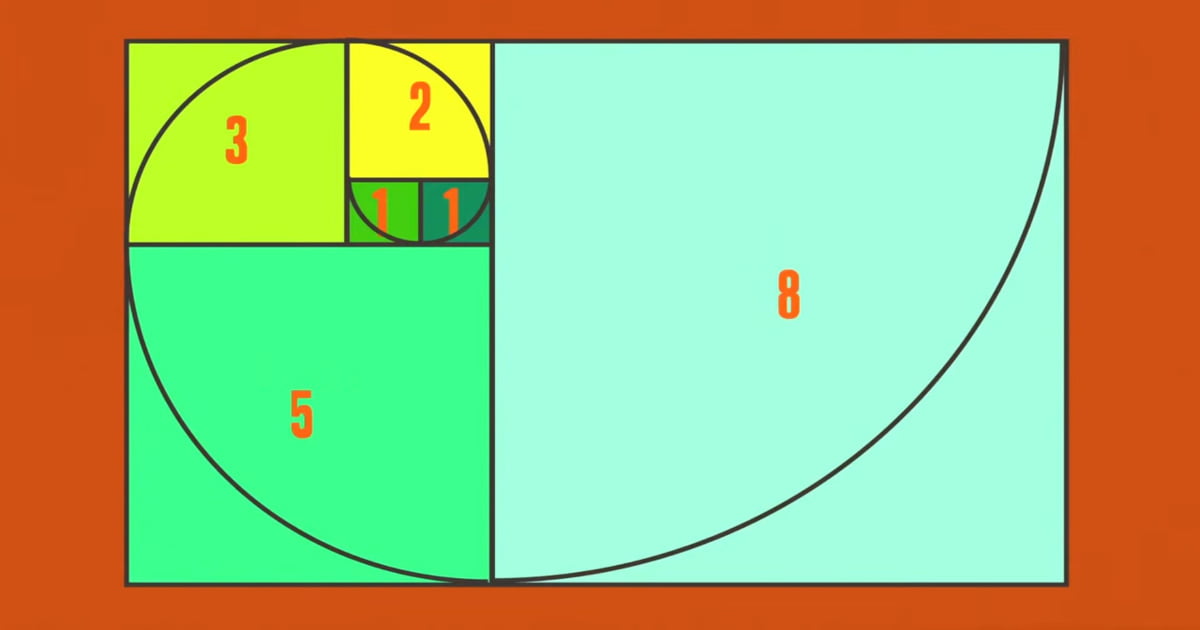Best Sports Betting Systems – How To Use Them and Can They Help You Win
When we talk about sports betting, you always have an opportunity to win big money if you bet randomly. On the flip side, betting on a pure hunch means that, over time, you can lose a significant part of your bankroll.
Yet what happens when you bet strategically, using betting systems? Then, you can successfully manage your bankroll and increase your chances to win bets.
However, some betting systems work, while others won’t. But don’t worry because, whether you’re a betting newbie or a seasoned gambling enthusiast, our in-depth guide to sports betting systems has got you fully covered.
Read ahead to learn everything you need to know about betting systems in sports!
What Is A Sports Betting System?
We can describe a sports betting system as a pattern or a strategic approach that we use to increase our winnings.
When we find a betting system that works for us, we have to decide if we’ll increase or decrease the amount of money we use for making sports bets, which depends on whether we’re on a winning or a losing streak.
Which option we choose differs whether we use a positive or a negative progression sports betting system. Everything is explained in the table below.
|
Positive Progression |
Negative Progression |
|
We raise our stake when we win |
We raise our stake when we lose |
|
We decrease our stake when we lose |
We decrease our stake when we win. |
In the following table, you’ll see types of positive and negative progression systems.
|
Negative Progression Sports Betting Systems |
Positive Progression Sports Betting Systems |
|
Labouchere |
Reverse Labouchere |
|
Fibonacci |
Contra D’Alembert |
|
Martingale |
Paroli |
|
D’Alembert |
Now, let’s dive deeper into the world of sports betting systems by giving a detailed breakdown of each system.
Negative Progression Sports Betting Systems
Labouchere
The Labouchere sports betting system was named after a well-known roulette player, Henry Labouchere. Besides its use in casino games, this system is also used by sports betting fans.
This system’s premise is that your bet’s total potential profit is divided into smaller wagers. So, if you want to win, let’s say $6, then you could use the following sequence: 1-2-3. Each time that you place a wager, your stake has to be a sum of the first and the last number in your sequence. Using the before-mentioned example, your stake would be $4 because the first number in your sequence is 1, and the last one is 3.
If you get a win from that bet, then the Labouchere sports betting method suggests that you should cross out the first as well as the last number in the sequence. So, in our example, you cross out 1 and 3. The final move for you would be to bet $2, and if you win, the sequence is over, and you can repeat the process.
On the other hand, if you lose that $4 bet, then you must add your stake into the sequence, which is 4. It would look like this: 1-2-3-4.
To sum up, you exclude the first and last number you’ve used in your sequence every time you win. On the flip side, if you lose, you add the stake as your last number in the sequence.
Remember that if you go into a losing streak, the money you wager could increase significantly.
Fibonacci
The Fibonacci sports betting system is based on the famous Fibonacci sequence. It’s no surprise that a lot of punters across the globe use this betting method. For those who are new to the betting, the Fibonacci sequence looks like this: 0, 1,1, 2, 3, 5, 8,13, 21, 34, 55, 89,144. In addition, when you bet using this method, you continue your sequence with a number that is the total sum of the previous two numbers.
However, this betting system is about more than just adding numbers in the sequence. The sequence is moving like a see-saw. So, if you lose a bet, then you move to the next number in the sequence. On the contrary, if you get a win, then you go back two numbers in the sequence.
We’ll give you a few examples of how it works. But, before we do that, in order to preserve your bankroll, we highly recommend that you start your bet using the Fibonacci system with a unit that amounts to $1.
Example 1.
Let’s say that your Fibonacci sequence is this one: 0,1, 1, 2, 3, 5. So, in this example, we will make a bet that will be 8(3+5) units because we look at the last two numbers so we can continue the sequence. If we lose, the sequence will look like this: 0,1, 1, 2, 3, 5, 8.
Example 2.
In this example, we’ll explain what happens if you win a bet using the Fibonacci method. This is the sequence that’ll be used: 0, 1, 1, 2, 3, 5, 8, 13, 21. We’ll make a bet that will amount to 34 units (13+21). If one unit is $1, then we bet $34. In the case of winning, our sequence will look like this (0,1, 1, 2, 3, 5, 8) since you should subtract exactly two numbers from the Fibonacci sequence when you win a bet.
The Fibonacci system could seem complex at first and hard to track, but with this system, you can get decent results if you’re persistent.
Martingale
One of the most popular and simplest sports betting systems is Martingale. It’s somewhat different from other betting strategies because you don’t increase your bet with one unit or an insignificant amount of money, but rather, you double your stake when you lose a bet.
Let’s say that you’re a fan of Manchester United and you want to bet on them in the Premier League every weekend. For instance, you decide that your base stake will be $10, and you make a bet on United with that amount. But they’ve lost that match, and you’ve lost that bet, so you double it and place a $20 wager on their next game.
Assuming that you lost that wager as well, then you would bet $40 on United. If you’ve lost the bet again, you also double the bet and go for $80. Only this time you’ve won $80 while betting on Manchester United, and your profit is the initial base stake of $10.
- You’ve lost $10, your total being -$10
- You’ve lost $20, your total being -$30
- You’ve lost $40, your total being -$70
- You’ve won $80, your total being $10
The Martingale is a high-risk sports betting system, but if you have deep pockets, you won’t regret it. Therefore, new bettors who want to start betting small amounts of money should be careful when trying it out.
D’Alembert
Mathematician Jean Le Rond D’Alembert was the one who developed the D’Alembert system, and his basic idea was that over a long period of time, your lost and won bets should even out.
Resembling the Martingale system, D’Alembert’s only difference is that it lets you increase your stakes slowly and not just double them like Martingale suggests. The D’Alembert is good for newbies because it will ensure that your bankroll doesn’t go empty. This betting system might not work for impatient bettors because your profits will rise slowly.
If you want to use this system, it’s recommended that your one-stake unit should be somewhere between 1-5% of your entire bankroll. Let’s say that your bankroll is $1000, and your stake unit is 4% of your bankroll, meaning that you place a $40 bet. If you lose, you’ll raise your stake by one stake unit ( $40), so you would place a $80 bet. Every time you lose, you increase the bet by one stake unit. If you win, you decrease your next bet by one stake unit.
Positive Progression Sports Betting Systems
Reverse Labouchere
Reverse Labouchere is a positive progression betting system that originated from the before-mentioned Labouchere system. The first step in implementing this system into your betting strategy would be to divide your total stake into a sequence or smaller wagers.
Let’s say that your total stake is $15, and you use the following sequence: 1-2-3-4-5. The sequence is equal to the total stake of $15. For every bet, the amount you wager is equal to the sum of the first and the last number in our sequence. In our example, we will make a $6 (1+5) bet.
If we lose, then we cross out the first and the last numbers in our sequence, which are 1 and 5.
Then we make a $9 bet because our sequence looks like this: 2-3-4.
On the other hand, if we win, then we add the last wagered number to our sequence, and it’ll look like this: 1-2-3-4-5-6. Then, we’ll make a $7 bet.
This betting system protects your bankroll since each time you lose, the sequence gets shorter
After you cross out all the numbers, you can repeat the whole process.
Contra D’Alembert
The counterpart to the D’Alembert system is the Contra D’Alembert. This positive progression system is ideal for novice bettors since they can place wagers even with a small bankroll.
Let’s use an example so that you can understand this betting system more clearly. Like in most betting systems, we have to set a base stake, which should be from 1 to 5% of our entire bankroll, that you’re comfortable losing in each bet.
In this example, our base stake will be $5. Let’s say, you make a $5 bet, and you win. Then, you increase your bet with an additional $5 base stake and place a $10 bet. Assuming you also won this bet, then you’ll place a $15 bet.
Unfortunately, if you lose your bet, then your next bet will be decreased by one base stake unit, so you’ll make a $10 bet. If you lose again, you’ll place a $5 bet. If you also lose this bet, your next wager should be the amount of your base stake, so that would be $5.
Reverse Martingale or Paroli
Reverse Martingale or Paroli is a positive sports betting system, used by many betting fans across the globe. It’s pretty straightforward because the idea of the system is that you raise your stake every time you win, which is a solid betting method if you’re on a winning streak.
Choose a small percentage of your bankroll that will be your base stake unit, for example, 2%. Then, you should place a bet with one base stake, and if you win, double your next bet.
The Paroli system suggests that you should go back to betting with one stake unit after making three consecutive wins. On the other hand, if you lose, just bet with one stake unit until you get a win.
For example, let’s say that the Denver Nuggets are playing against the LA Lakers in the Western Conference Finals. Your base stake unit is $100, and you make a bet with that amount. The Lakers have won, and you double the bet and place $200. They win another game, and you bet $400. Then, regardless of the third bet’s outcome, your fourth bet should be $100 or one base stake unit.
Other Betting Systems
Flat Betting
Flat betting is a great system for controlling your bankroll. The idea behind the system is that you choose a base stake that will be 1-5% of your bankroll. For instance, your bankroll is $1000, and the base stake is 1% of your bankroll, which is $10.
The flat betting system suggests that you bet the same base stake for an extended period of time (one month, for instance) until you get a winning streak.
Value Betting
Value betting is a betting system whose premise is to make bets that have a bigger chance than the odds given by the bookmaker.
The easiest example would be a coin toss. We all know that the chances of getting heads or tails are the same, 50%. But, in this example, the bookmaker gives a 2.10 odd, or 47.62 % chance, that the coin will land on heads. This is a value bet since the real probability is 50%, compared to the 47.62% probability given by the sportsbook.
Arbitrage Betting
Arbitrage is a betting system that allows one to get a profit from making multiple bets on one sporting event, regardless of the outcome.
Let’s say that our bankroll is $200, and today, there’s a Premier League match between Arsenal and Manchester City. Using the arbitrage system, we will make three separate bets that will amount to $200 ($50, $55, $95):
- We bet $50 on Arsenal to win, with 4.5 odds. If they win, our profit is: ($50 x 4.5) – $200 = $25
- Next, we bet $55 on Manchester City to win with 4.00 odds. If they win, our profit is: ($55×4.00) – $200 = $20
- Then, we bet $95 on a draw with 2.25 odds. In the case of a draw, the profit is ($95 x 2.25) -$200 = $13.75
Busting Common Myths On Sports Betting Systems
#1 – Sportsbooks aren’t safe
This isn’t true because you can find a lot of sportsbooks where you can have a safe and worry-free betting experience.
On the other hand, there are a lot of untrusted sportsbooks online that you should avoid since there’s a risk of someone stealing your personal information. The best thing to do is to sign up at a trusted online sportsbook, and you’ll be safe.
#2 – All online sportsbooks will ban me if I win all the time
Online sportsbooks won’t ban you from their website as long as you don’t do anything illegal or violate the terms and conditions. We all know that sportsbook websites make their profit by adjusting the odds so they can make an implied probability that is a little over 100%.
Nevertheless, some sportsbooks can limit your account if you win large amounts of money regularly.
#3 – I’m due for a win
While betting on sports, getting on a losing streak isn’t a good feeling, and maybe you’ve heard from a fellow bettor that the losing streak will end, and you’ll eventually get a win. That’s not completely true.
That isn’t a healthy mentality, and it’s not good for your bankroll that you just continue betting for who knows how many times without getting a win, thinking that it’ll come one day.
If you really want to win, stop betting for a while and make a betting strategy so you can start betting smartly.
FAQ
Do sports betting systems guarantee success?
They don’t guarantee success. While they give you a structured approach to betting, the outcomes of sporting events are uncertain, and there’s a risk that you’ll lose your money.
How Can I Choose The Right Sports Betting System?
It all depends on how much you’re willing to risk, and you should choose systems that go along with your level of betting knowledge.
Do Sportsbooks Allow You To Use Betting Systems?
They do, as long as you follow the terms and conditions. However, some sportsbooks could limit your account if you use particular betting systems.
Can I Make My Own Sports Betting System?
Yes, you can, and many betting lovers make their system based on their previous experience and risk tolerance. We highly recommend that you test out your betting system as often as possible to improve its effectiveness.



